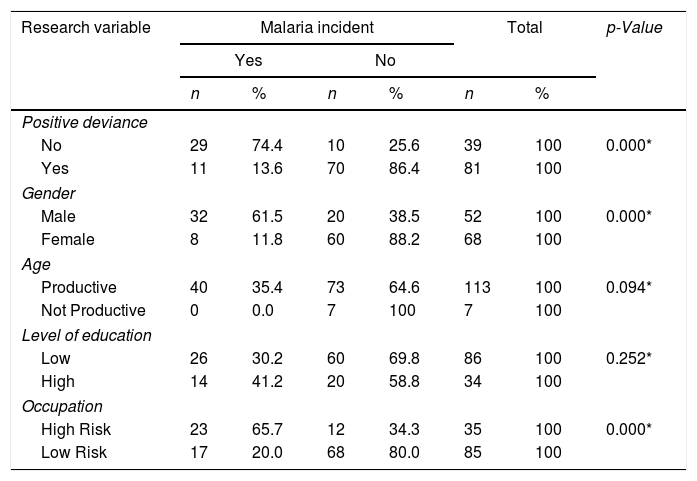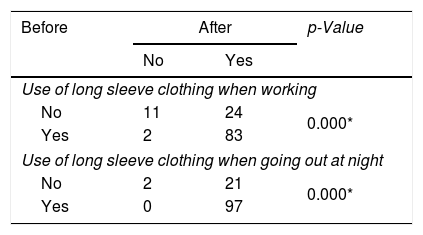This study aimed to determine the effect of positive deviance on decreasing malaria incidence in the Selayar Islands Regency and the effect of reinforcement on positive deviance behavior.
MethodsThis study used a mix-method design to find positive deviance in preventing malaria and intervene by applying positive deviance to the community in Bontona Saluk village and Batangmata village, Bontomatene District, Selayar Islands Regency. Sampling for quantitative data was 120 respondents, and qualitative data were ten informants using purposive sampling. Data collection was done through interviews and Focus Group Discussions (FGD). Quantitative data were analyzed using logistic regression and McNemar tests.
ResultsThe results showed the most influential factor in malaria incidence was positive deviance. Positive deviance behavior to prevent malaria were used long-sleeved clothing when working and when out at night, use oil, and burn trash and coconut belts. Intervention monitoring results show that there is a significant effect of positive deviance strengthening interventions on increasing the use of long-sleeved clothes when working in the garden/forest and when going out at night to prevent malaria.
ConclusionThe positive deviance approach could be used as an effort to prevent and control malaria.









